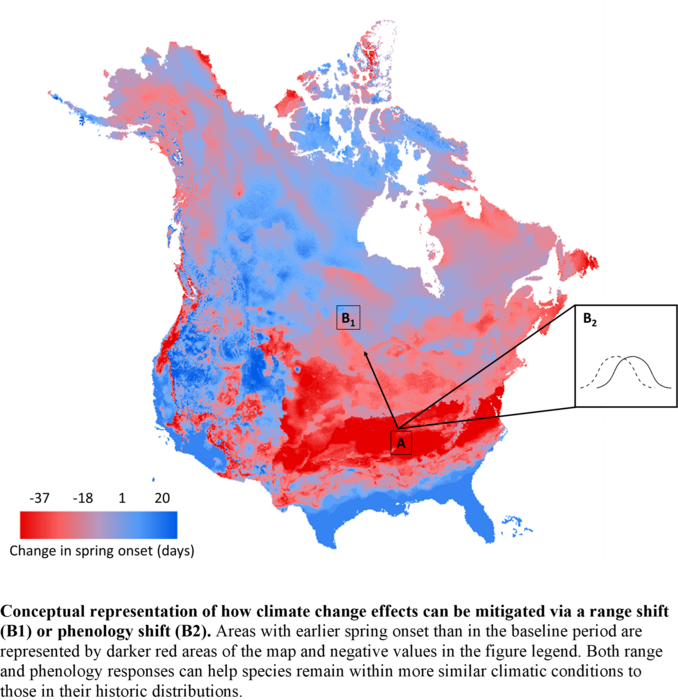New research from the University of Ottawa has found the earlier arrival of spring in parts of North America negatively impacts bumblebee survival, which could potentially threaten bee-pollinated agricultural crops and other plant sources.

Credit: Biological Conservation / University of Ottawa
New research from the University of Ottawa has found the earlier arrival of spring in parts of North America negatively impacts bumblebee survival, which could potentially threaten bee-pollinated agricultural crops and other plant sources.
Published in Biological Conservation, this paper is among the first to study climate change’s influence on seasonal weather changes in relation to bumblebees. Researchers from the Faculty of Science found the bees are not correspondingly shifting their activity timing earlier in the year, threatening their ability to find food sources or causing bees to miss out on them altogether.
“This study represents crucial groundwork for understanding that climate can impact the seasonal timing of biological events,” says lead author Olga Koppel, a PhD student in the Faculty of Science’s Department of Biology.
“Bumblebee survival is strongly in our best interest, as we rely heavily on bee-pollinated agricultural crops, including vegetables, fruits, and even clothing fibres such as cotton. The over 40 bumblebee species that are native to North America provide this invaluable economic service.”
Climate change is being linked to global biodiversity decline and its impact on species is a quickly growing field of research. Climate change increases the likelihood of earlier spring onset and flowering in many areas including spring plants, wild plants and trees. These are a necessary food source for winter hibernating bumblebee queens, who search for pollen and nectar after waking up hungry in need of energy.
Being able to match the timing of floral resources gives bumblebee species an edge. Survival, however, for those emerging from hibernation before the arrival of spring flowers – their main food source –is unlikely and leads to smaller colonies with lower odds of persisting in that area the following year. Bumblebees who sync with the changing timing of spring take full advantage of the season’s floral resources and are more likely to persist over time.
Lead authors Koppel and Jeremy Kerr, a Full Professor and Chair in the Department of Biology, examined the relationship between climate and bumblebee spring emergence in a database of specimens from museum collections across North America, comprising 21 species and 17,000 individuals. The authors found climate strongly explained variation in spring emergence timing in 15 of the 21 bumblebee species.
“This research has demonstrated that bumblebee emergence timing can be biased heavily in the direction of climate changes, which has implications for similar research on other species, as well as for the urgent conservation of these valuable pollinator species,” says Koppel. “This study provides a roadmap for evaluating large-scale temporal responses to climate change for many insects and other animals.”
‘Strong phenological shifts among bumblebee species in North America can help predict extinction risk’ by Olga Koppel and Jeremy Kerr, Department of Biology, Faculty of Science, is published in August’s Biological Conservation. DOI: 10.1016/j.biocon.2022.109675
Journal
Biological Conservation
DOI
10.1016/j.biocon.2022.109675
Method of Research
Observational study
Subject of Research
Animals
Article Title
Strong phenological shifts among bumblebee species in North America can help predict extinction risk
Article Publication Date
28-Jul-2022




